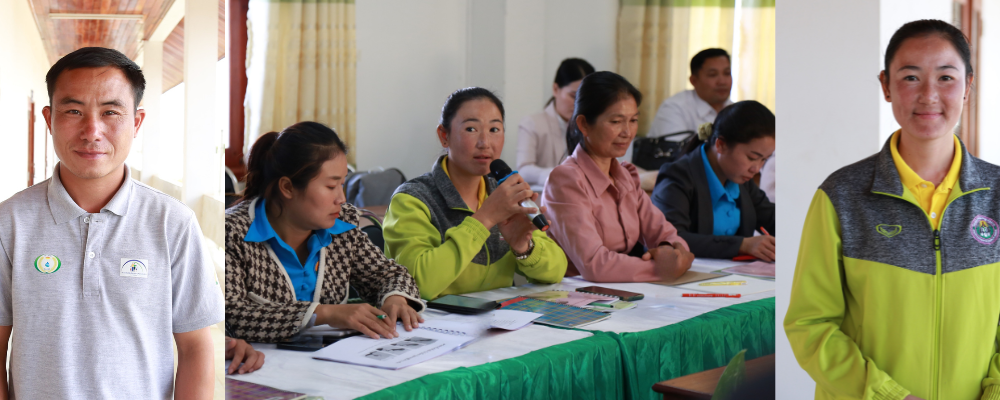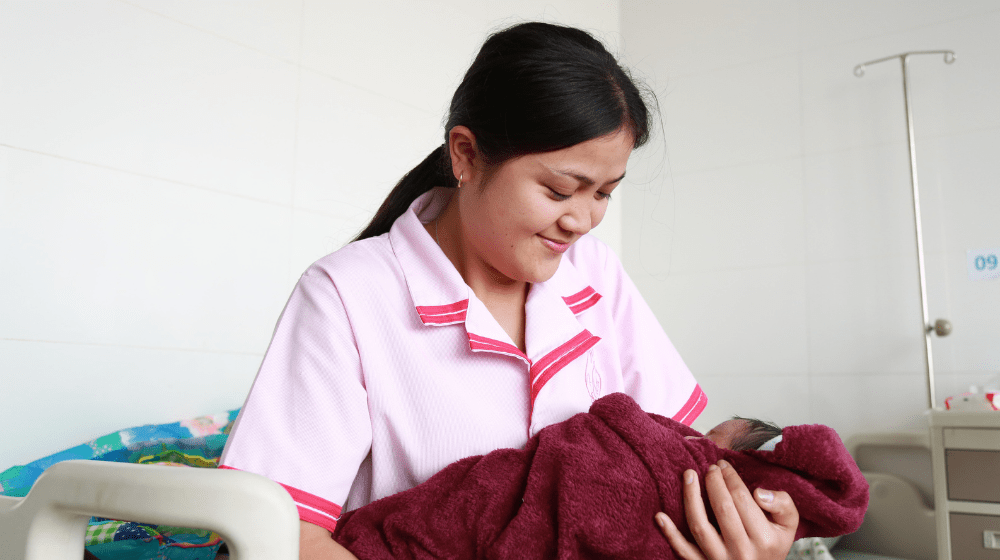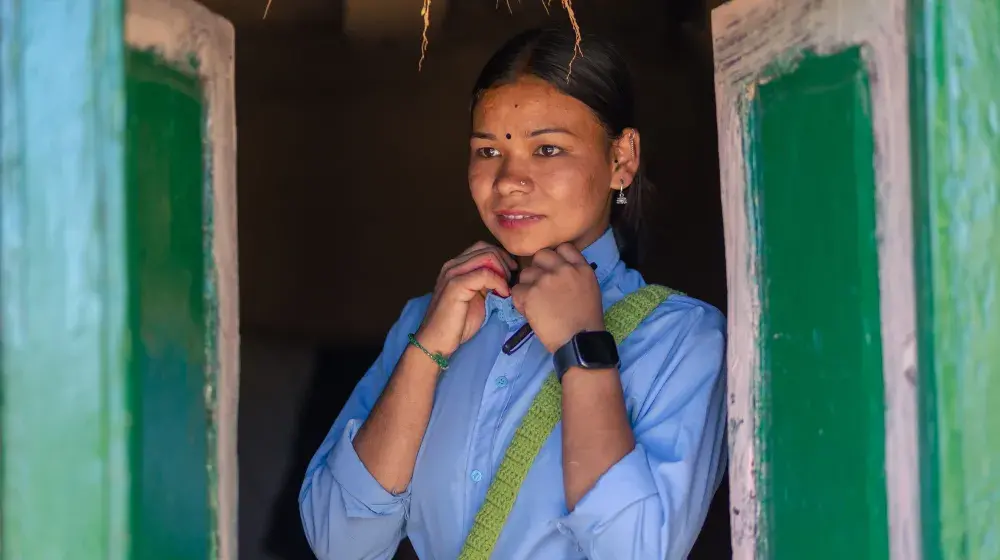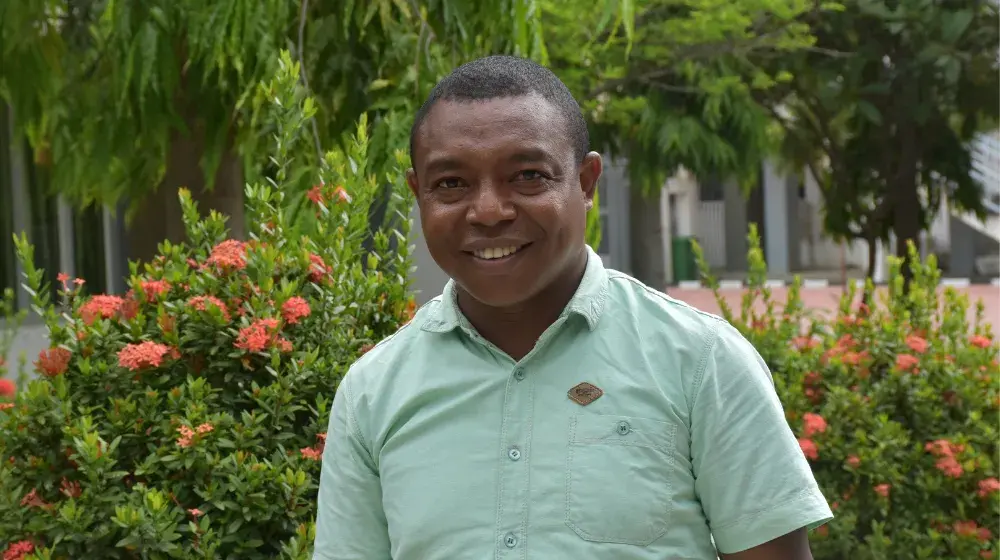“I met with a 14 year-old girl in my village who was pregnant. I knew immediately that this was a case at risk of health complications. I asked her to go to the village hospital, but she refused to be monitored because the nurse at that hospital was a male practitioner,” says Lar Inthavong, a 28-year-old midwife from Long Hang village, in Phoukout district of Lao PDR.
She recalls that the girl spent three days in labor before she was able to finally convince her to go to the hospital. The day after her delivery, the young girl started bleeding continuously for over three hours. Lar contacted her colleagues using the telehealth support system that was established to seek medical advice on immediate actions needed to save the mother’s life.
“We were successful, but after I faced this situation, I decided I needed more training. So I joined the Basic Emergency Obstetric Care (BEmOC) training programme to gain more skills and confidence in my practice,” says Lar.
The Basic Emergency Obstetric Care training which Lar attended is a four-day course designed to build the capacity of midwives, nurses, general practice physicians, obstetricians and gynecologists who commonly attend to births at the acute phase of an emergency response. Here she was joined by 36-year-old Vongchanch, a doctor based in Khoun district’s Longsan village who also attended the BEmOC training for health workers.

Beyond gaining new skills, the training also offered an opportunity for these healthcare professionals to gain mentorship and share experiences and best practices that can bring about positive maternal and newborn health outcomes to achieve zero preventable maternal deaths by 2030. Vongchanch and Lar Inthavong now go to work each day more confident, knowing their specialist skills can make life-saving differences to the communities they serve.
Encouraging others to participate in this programme, Lars says,
"We have a very rewarding, yet challenging job. Receiving this type of training can literally be the difference between life and…another outcome”.
For Vongchanch, supported by just five volunteers in his village, this transfer of knowledge is critical as the remote location, lack of information and cultural beliefs combined continue to expose pregnant women to multiple risks during pregnancy, delivery and postpartum. “I cover three villages. Despite all efforts to raise their awareness, they always wait for the last minute to come to the health facility for delivery. Now we are doubling efforts to raise awareness on the risks of early pregnancies as well as child marriage,” said Vongchanch.
Supported by UNFPA, these skills development programmes reflect the broader commitment of the Ministry of Health of Lao PDR to build the capacity of midwives. This was emphasized at the 7th Asian and Pacific Population Conference held in Bangkok in late 2023, where the Government of Lao PDR reiterated the commitment made 30 years ago, at the International Conference on Population and Development, aiming to achieve zero preventable maternal deaths through increased investments in midwifery, especially in remote and hard-to-reach areas.
With generous support from development partners such as KOFIH, Luxembourg and the Maternal Health Trust Fund, UNFPA remains committed to continue high-impact maternal and newborn health interventions, building on the health systems strengthening programmes that are already delivering results – testament to Lao PDR establishing Asia and the Pacific’s first internationally accredited midwifery schools. Basic emergency obstetric and newborn care, provided by skilled and dedicated staff such as Lar and Vongchanch, is critical in this endeavor, to sustain gains made in high-impact maternal and newborn health interventions in Lao PDR.
***





